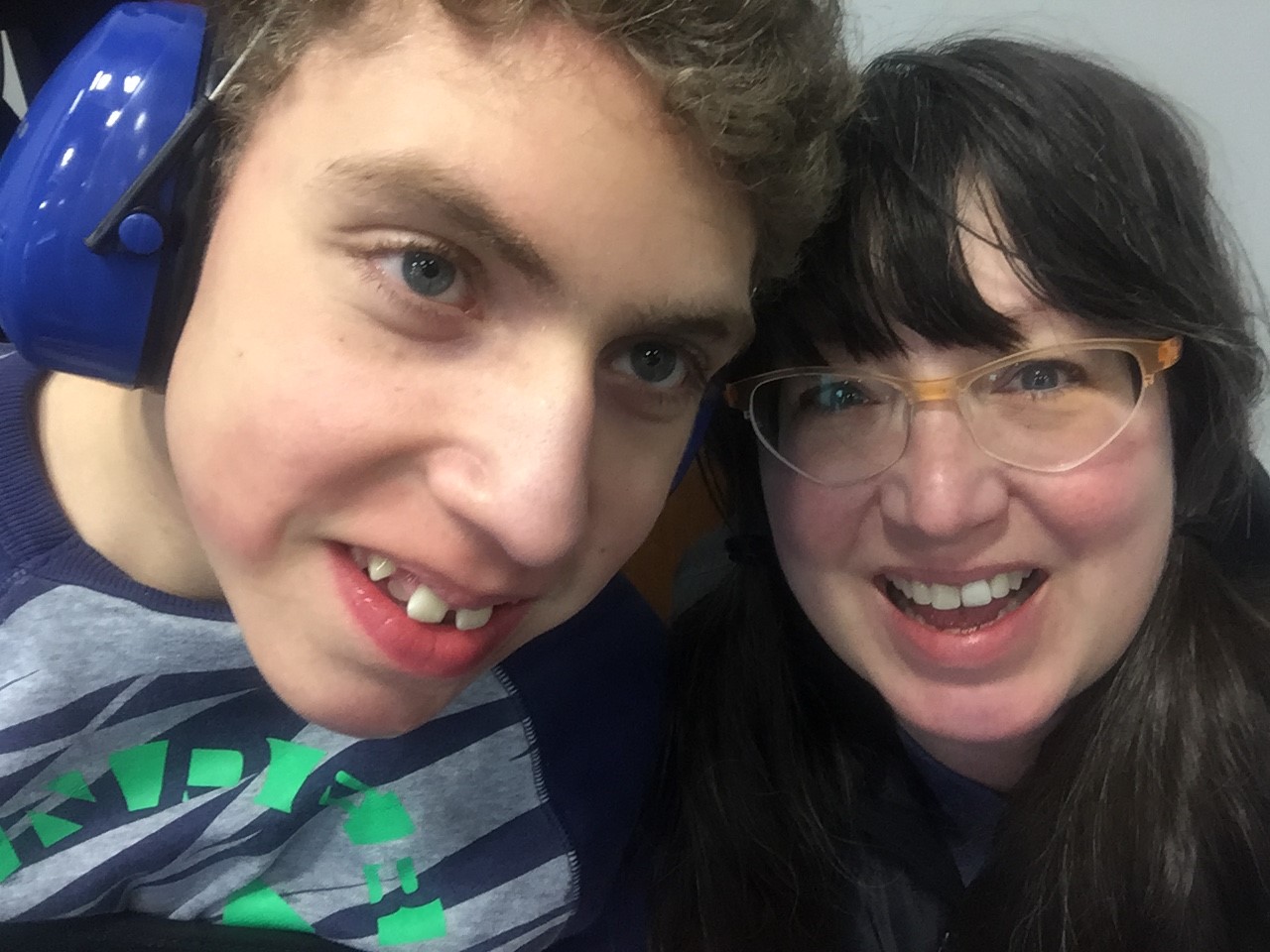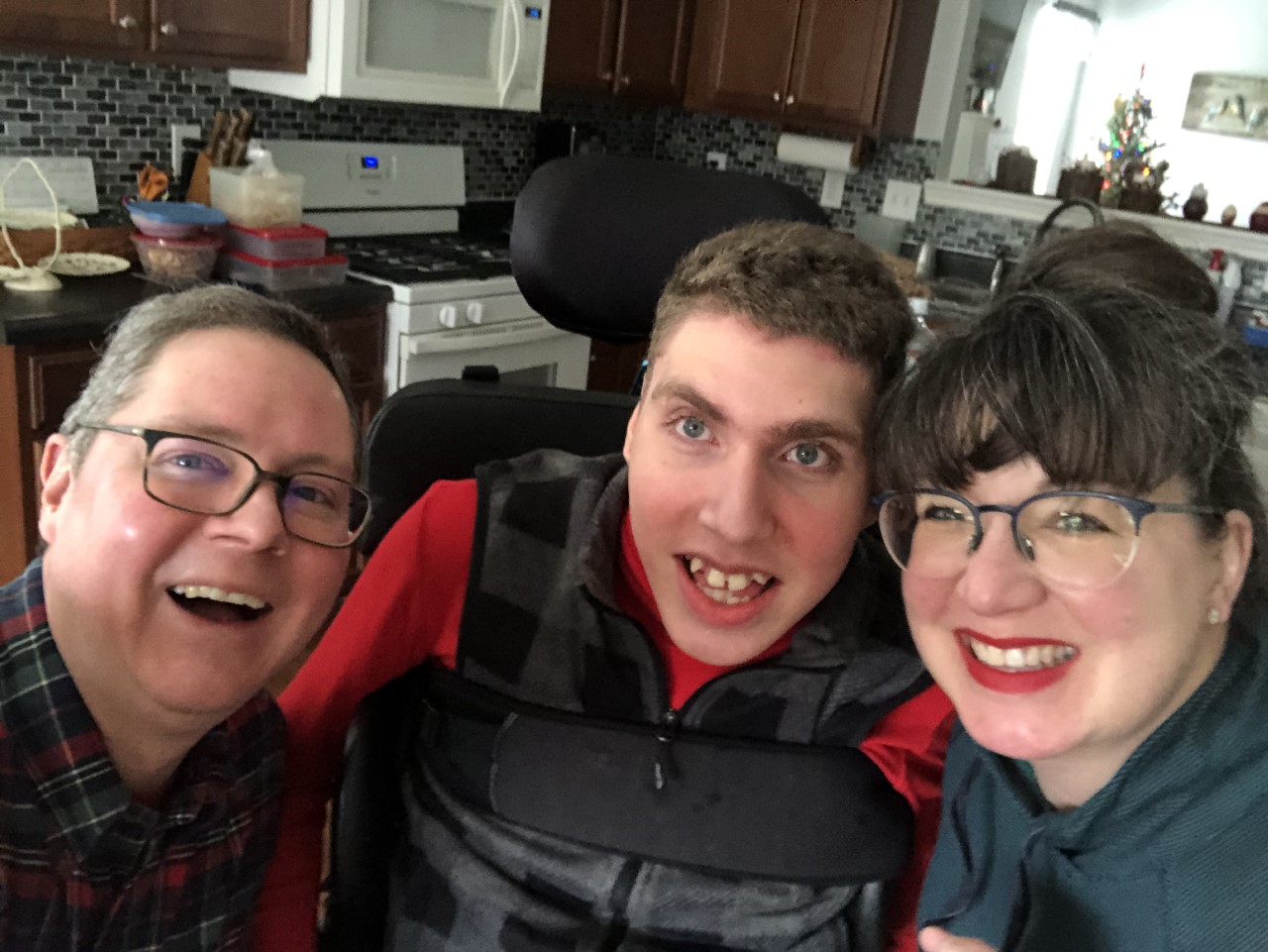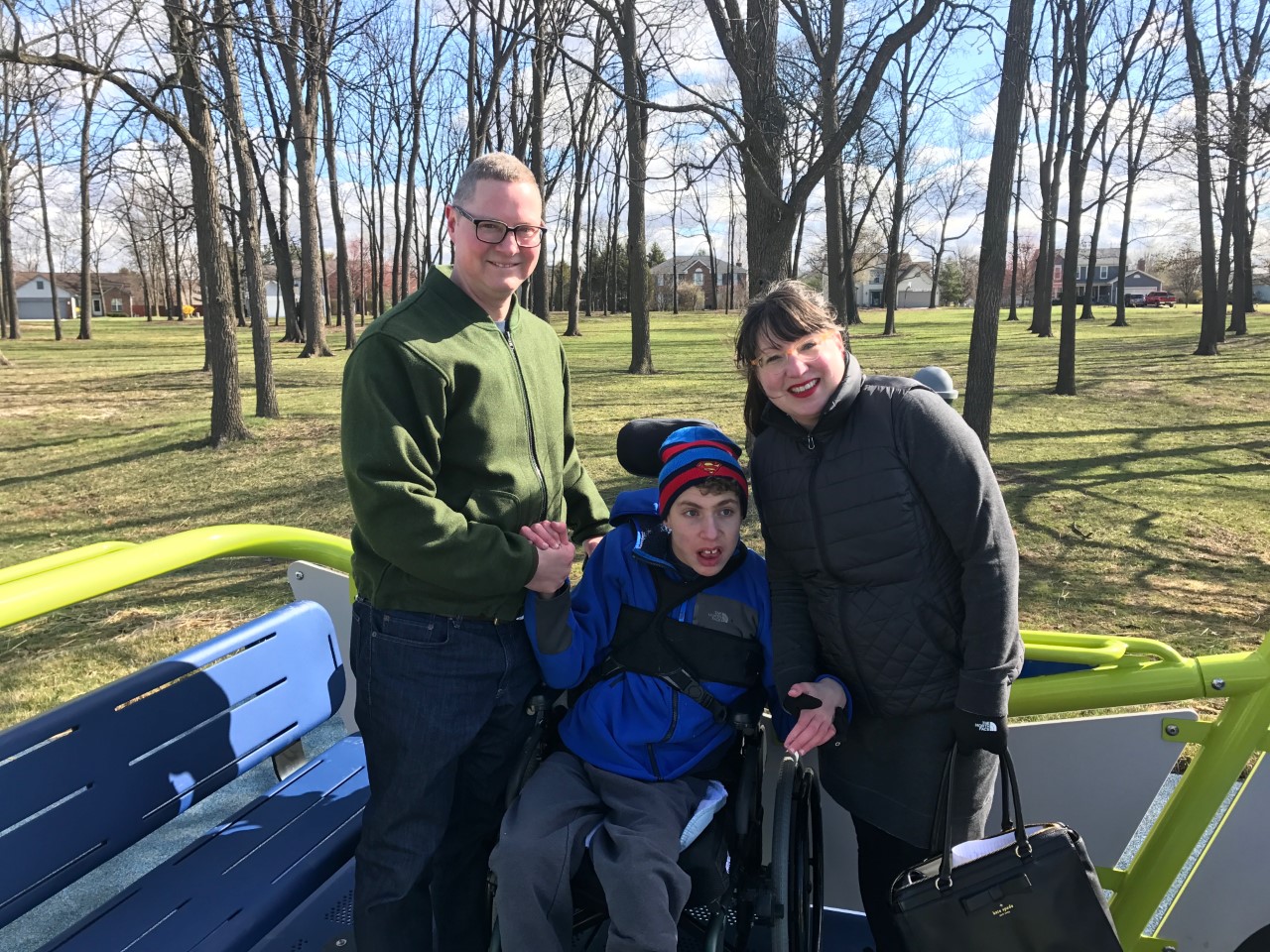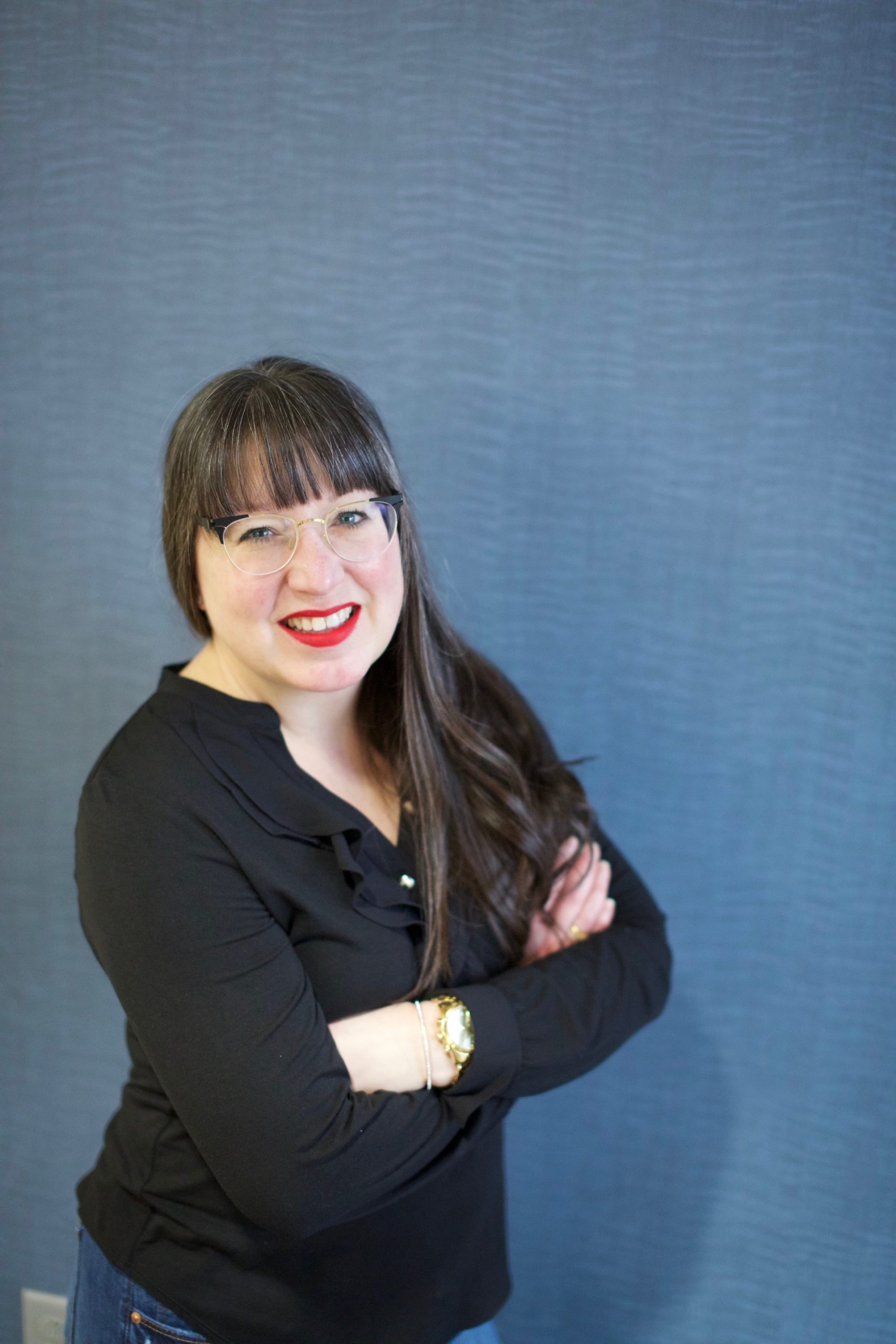In honor of Fishers’ celebration of National Disability Awareness Month, we’re featuring community stories related to disability and inclusion. Learn more about the celebration and how you can be an ally for disability inclusion at fishers.in.us/DisabilityAwareness.
What Can I Do To Help?
Anytime I reveal a glimpse of the reality of my caregiving life of a 17-year-old son with severe cerebral palsy, well-intentioned folks respond, shaking their head with empathy, I don’t know how you do it.
My response? You do it because you have no other choice.
And that’s typically the end of the conversation. Some add a final sentiment, I hope you can find some help soon.
The response I say only to myself is, Hoping doesn’t make action happen.
And because your family and friends tire of asking and saying those same words to you— because they too realize how hollow they are—they then begin to recede. They stop asking how you are, how your son is, because you reply the same. It’s a broken record because the challenges remain the same. Nothing changes. And so, you decide to stop telling them altogether. And thus, your circle and your support system shrinks even more.


My son, Will, was born prematurely with two different injuries to his brain, resulting in severe cerebral palsy. He has had 39 surgeries and procedures in his 19 years of life. Every time he gets a bad cold or flu, he is hospitalized. He has had pneumonia five times. He has to see his 12 pediatric specialists every 3- 6 months to keep him healthy and living.
He is fed through a feeding tube. He has a medically implanted Baclofen pump that delivers spasticity medication to his spine allowing him to lie and sit more comfortably. He is non-verbal and non-ambulatory. He requires full physical assistance to do anything, including simply rolling over. He is fed and given medications every day, every hour on the hour from 8 a.m. until 8:30 p.m.
Sometimes we can secure home health care nursing through our insurance, but that is inconsistent. There is a nursing shortage and an even worse home health care nursing shortage and pediatrics are harder to staff. We are lucky to have the means to hire some of our own help. But we can’t afford enough of that help. Currently, 75% of my salary goes to pay for that help. Why not just stay home then? Because I need a break, and work creates that break. And Will needs for me to also just be his mother, not just his full-time caregiver. There is a difference.

Caregiving is demanding and hard. It requires you to be physically, emotionally, and mentally strong and on—all the time.
But, please also understand and know this. It’s also a privilege.
My son is a beautiful human being. He is my joy boy. I can’t imagine him belonging to any other mother and father. He chose us. He knew we could do the hard. Will can communicate using pictures. Will can learn and is learning at HSE Schools. He can roll his own wheelchair and go where he wants to go as long as those places are accessible to his chair. He can love, smile, and cry. Everyone who knows Will, who is willing to know him, loves him. He knows no stranger and loves social interaction. His teachers, therapists, teacher assistants, and his peer helpers just call us Will’s mom and dad, never our names. And that’s my favorite title: Will’s mom.
What does Will contribute to Fishers? He teaches others how important it is to smile, to high five, to love, to play, and to give. Caregiving him full time is an honor because it means my son can keep doing the important work he does for and in this community.
If you know a caregiver, I encourage you to not just sympathize for them, but to empathize through action with them. Ask them how they are doing and then listen. Respond by asking, What can I do to help? And offer specifics so we understand what you are comfortable giving and doing.
Help doesn’t mean you have to take on all of the medical tasks my husband and I do. It can mean that you cook my family some meals, get my mail when my son is in the hospital, gift me chocolate and wine when things are tough like my friend Kim Rowe of Fishers has done so many times over the years. You can offer to fold the never-ending pile of laundry that lives on my dining room table, grab my groceries, run through CVS where we have to frequent 2-3 times a week.
Or, you can come to my house to play with Will and learn to feed him to give me a break like my Fishers friend, Julie Strawhacker, has done so many times.
Or you can offer to get in the trenches with me and take care of Will for an evening or even overnight so you and your husband can have a break and some time alone like my Noblesville friends Ann and Chris Silcox have done so many times.
Or you can help advocate for Will’s needs in the community and include him in your camp and future Fishers Outside the Box adult day center giving the momager planner like me some peace of mind like my Fishers friend, Kelly Hartman, has done over the years.
Instead of I don’t know how you do it, ask What can I do to help?
Learn more about March Disability Awareness Month and how you can be an ally at fishers.in.us/DisabilityAwareness.
Dr. Darolyn “Lyn” Jones is a Fishers resident, mother, activist, teacher, researcher, and writer. She is an Assistant Teaching Professor in the English Department at Ball State University, Education Outreach Director for the Public Memoir Project with the Indiana Writers Center, and has been an active member of the Fishers Advisory Council on Disability since its inception in 2017. Lyn moved with her family to Fishers in 1998 so her son, Will, could attend HSE Schools and participate in their strong special education program. She loves the schools and amenities that Fishers has to offer, from the new shops and restaurants at Fishers District to the community events and numerous trails and parks around the city (Cumberland Park is one of her favorites!) Lyn is a self-described “momager and workaholic,” but enjoys cooking and writing as some “me time.”

